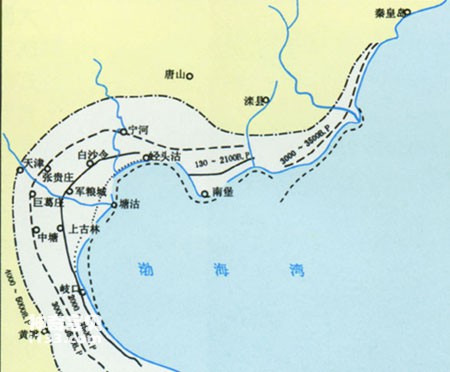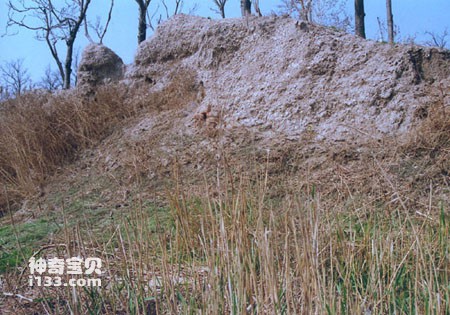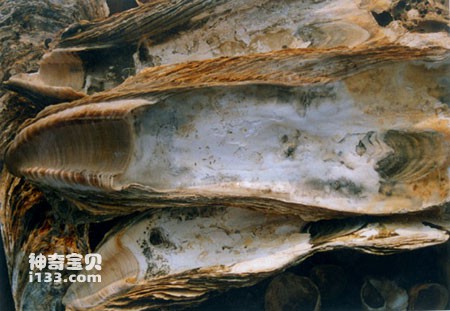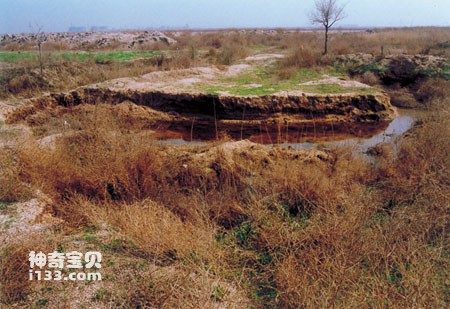On the west bank of Bohai Bay, the shell embankment along the coast of Huanghua City, Hebei Province is famous far and wide. In recent decades, Huanghua Shell Bank has been an important object of research by scientists. Huanghua Shell Dike in Bohai Bay consists of 6 shell embankments. The six shell banks are all parallel to the modern coastline, representing coastal locations in different eras. Scientists named the six shell embankments No. 1, No. 2, No. 3, No. 4, No. 5 and No. 6 shell embankments from west to east according to their distance from the sea.

Schematic diagram of Bohai Sea coast changes
Shell banks are formed by the hard shells of dead shellfish living in the intertidal zone that are transported by waves and accumulated near the high tide line. Huanghua No. 1 shell embankment was formed between 6150 and 5340 years ago. It took 810 years from the beginning to the end of development. During these 810 years, the embankment was the coastline at that time. During this period, no large rivers entered the sea here, and the seawater had high transparency and was suitable for shellfish. The shells left over after a large number of shellfish died were accumulated near the high tide line under the action of waves, forming Shell Bank No. 1.

The remains of ancient shells can be seen everywhere in Dagang
After 5340 years ago, due to the Yellow River entering the sea nearby, the sea water became turbid, the sediment was deposited into land, and the coastline stretched forward, thus the No. 1 shell embankment was abandoned on high land.

Ancient mother-of-pearl remains (about 2,000 years ago)
Due to the diversion of the Yellow River, the amount of sediment entering the sea has been drastically reduced, the sea water has been clarified, siltation has stopped, the coastline has stabilized, and shellfish have multiplied in large numbers. Under the action of waves, a new shell embankment has been formed, namely Huanghua No. 2 Shell Embankment. Shell Dike No. 2 was formed between 4740 and 3955 years ago and is 15 kilometers away from Dike No. 1. The formation of the embankment took about 785 years.

Tianjin Dagang Ancient Coast Site
The reason for the formation of Huanghua Shell Embankment is roughly the same. For more than 6,000 years, the mouth of the Yellow River has oscillated between the Bohai Sea and the Yellow Sea. The six shell embankments along Huanghua's coast are all products of the sea and the Yellow River. The six shell embankments running parallel from east to west are like six brothers standing in a row. The No. 1 embankment, which is the farthest to the west and farthest from the shore, is the eldest among these brothers and has been in existence for 6150 years. The easternmost embankment No. 6 is still flooded at high tide and exposed at low tide. It was only formed 1030 years ago. The two are 30 kilometers apart and 5,120 years apart in age. The six shell embankments show that since 6150 years ago, the Huanghua coastline has been undergoing drastic changes from west to east. Shellfish remains can be used to determine geological age. Shell banks are faithful records of coastal changes and sea level changes and are of great scientific value. Shell embankments also have a bank protection role and have certain economic value. Shell sand can be used as building materials and feed additives. In recent years, the Huanghua Shell Embankment has been over-developed. In order to protect the Shell Embankment from damage, the local government has established the Shell Embankment Nature Reserve. <br>
animal tags:
We created this article in conjunction with AI technology, then made sure it was fact-checked and edited by a Animals Top editor.